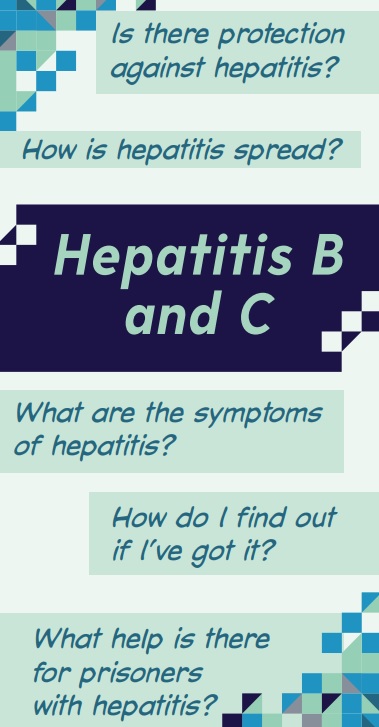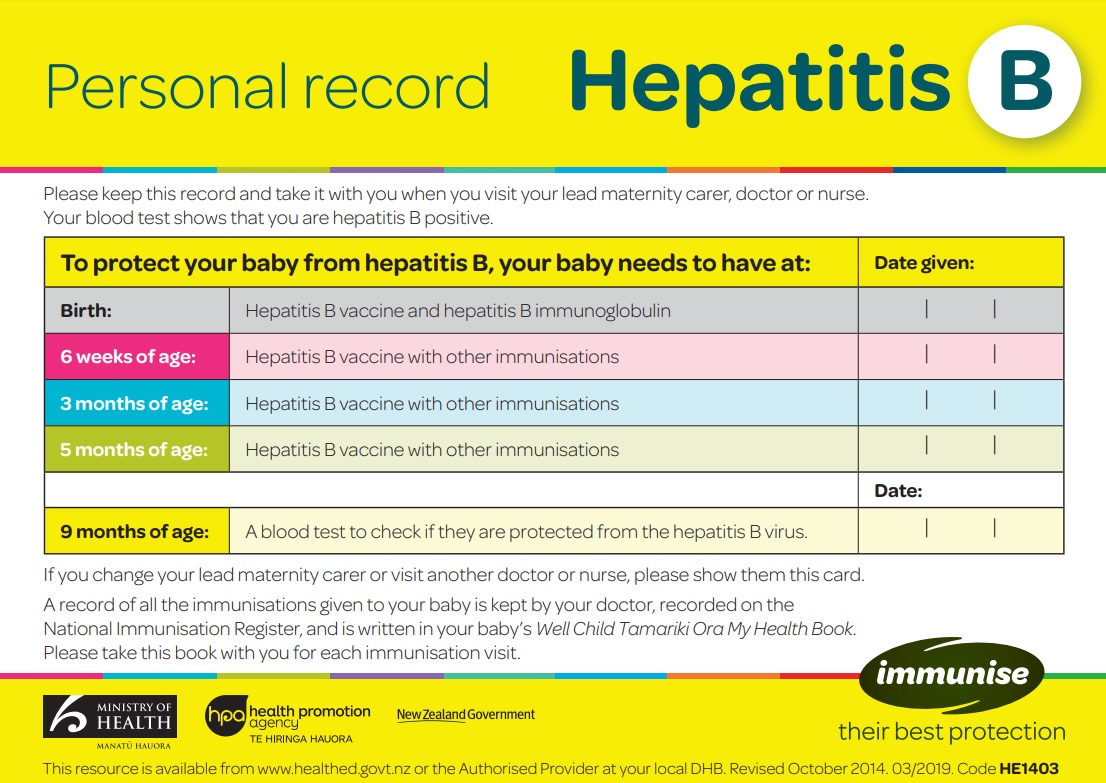Hepatitis B vaccine
Key points about hepatitis B vaccine
- The hepatitis B vaccine protects against infection from the hepatitis B virus.
- It is also called Engerix-B® and Infanrix-hexa®.
- Find out about the vaccine and possible side effects.

Hepatitis B vaccine gives protection against infection from the hepatitis B virus. The vaccine works by causing the body to produce antibodies against the virus responsible for hepatitis B infection and in this way protects (or provides immunity) against the disease.
Hepatitis B is a virus that is easily spread through contact with the blood or bodily fluids (such as saliva and semen) of an infected person. For example, it can be passed on through unprotected sex, by sharing injection gear, through a needle stick injury or from pregnant person to child during childbirth. Hepatitis B infection can cause serious problems including liver failure, cirrhosis and liver cancer. Preventing infection can prevent these problems. Read more about hepatitis B.
Hepatitis B immunisation is recommended and funded for the following groups:
- All children up to their 18th birthday.
- Babies born to mothers with hepatitis B infection (read more about hepatitis B and pregnancy).
- People who live in close contact with someone infected with hepatitis B.
- Anyone undergoing renal dialysis.
- People who have hepatitis C infection, or who are HIV positive, or who have had a needle stick injury.
- Anyone who has received immunosuppression therapy of at least 28 days or has had solid organ or bone marrow transplant.
Hepatitis B immunisation is also recommended, but not funded, for:
- workers who are likely to come into contact with blood products, or who are at increased risk of needlestick injuries, assault, etc.
- people who change sex partners frequently such as sex workers
- people who regularly receive blood transfusions such as people with haemophilia
- prison inmates
- current or recent injecting drug users
- migrants and travellers from or to areas with intermediate or high rates of hepatitis B such as the Asia and Pacific region.
There are a few different vaccines that are effective against hepatitis B, but only the following 2 are funded in Aotearoa New Zealand.
Infanrix-hexa®
This is a combination vaccine that provides protection against hepatitis B and other infections including diphtheria, tetanus, pertussis, poliomyelitis and disease caused by Haemophilis influenza type B. It's usually given to babies as part of the primary immunisation at 6 weeks, 3 months and 5 months of age. This vaccine protects almost all children (95%) from hepatitis B infection. No further doses are required. Protection is expected to be lifelong.
Engerix-B®
This vaccine protects against hepatitis B only. It doesn't protect against other infections including other hepatitis infections such as hepatitis A and hepatitis C. It's used in special groups eligible for hepatitis B vaccine (as above), in older children or adults who haven't had their complete hepatitis B immunisation or it's given at birth to infants born to people who are hepatitis B positive.
To get the full benefit of the Engerix-B vaccine, 3 doses of the injection are needed. Booster doses are normally given 1 and 6 months after the first dose. Depending on your body's response to the vaccine, a further booster dose may be given 1 to 5 years after the third dose to give longer protection. Your healthcare provider will give you advice on whether the booster dose is needed.
However, depending on your risk of infection, these timings can be closer together. For example, if you're travelling to a high-risk area in less than 6 months, you can receive an initial dose followed by booster doses at 7 and 21 days. Another booster dose is advised 12 months later. This schedule provides you with rapid protection.
These vaccines are given intramuscularly (injected into the muscle) of your upper arm or thigh.
Like all medicines, vaccines can cause side effects, although not everyone gets them.
| Side effects | What should I do? |
|---|---|
|
|
|
|
|
|
|
|
| Read more about medicines and side effects and reporting a reaction you think might be a side effect. | |
There are many different settings in which you can get a vaccination. These include medical or health centres, pharmacies, community-based clinics including marae-based clinics, mobile health clinics and mobile vaccination services.
Read more about who can give vaccinations and where to get vaccinated.
Vaccines on the National Immunisation Schedule are free. Other vaccines are funded only for people at particular risk of disease. You can choose to pay for vaccines that you are not eligible to receive for free.
The following links provide further information on hepatitis B vaccines:
The New Zealand National Immunisation Schedule(external link)
Vaccine side effects, reactions and safety – if you have concerns about symptoms after a vaccine(external link) Health New Zealand | Te Whatu Ora
Engerix-B(external link) Medsafe Consumer Information
Hepatitis B and C(external link) HealthEd, NZ, 2019
Hepatitis B – personal record(external link) HealthEd, NZ, 2020
References
- Hepatitis B(external link) Immunisation Handbook 2024, version 5
- Hepatitis B(external link) The Immunisation Advisory Centre
- Infanrix-hexa(external link) The Immunisation Advisory Centre
- Engerix-B(external link) The Immunisation Advisory Centre
Brochures

HealthEd, NZ, 2019

HealthEd, NZ, 2020

Medicines and side effects
Healthify He Puna Waiora, NZ, 2024
Credits: Healthify He Puna Waiora editorial team. Healthify is brought to you by Health Navigator Charitable Trust.
Reviewed by: Sandra Ponen, Pharmacist, Auckland
Last reviewed:
Page last updated:





